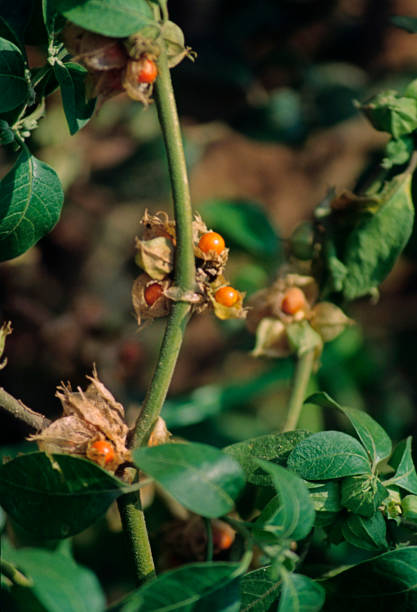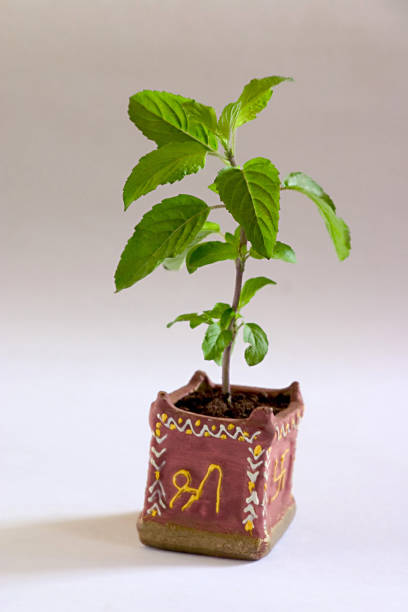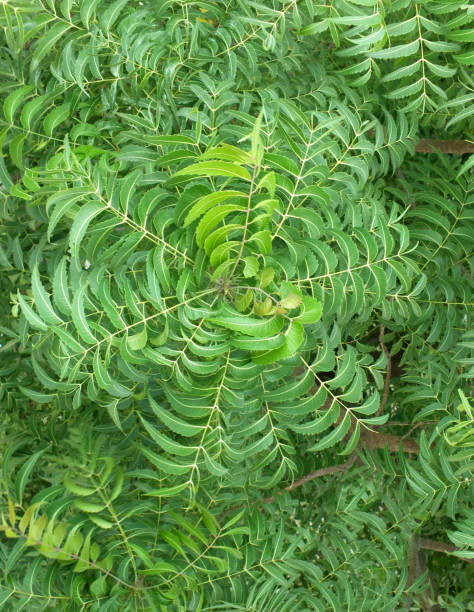Ayurvedic Vanaspati comprises a diverse array of botanicals, each imbued with unique therapeutic properties. In Ayurveda, the term “Vanaspati” denotes medicinal plants or herbs central to this ancient healing tradition originating in India millennia ago. These plants form the cornerstone of Ayurvedic medicine, offering a wide spectrum of medicinal benefits tailored to support holistic well-being.
These medicinal plants are used in various forms, including herbal remedies, decoctions, powders, oils, and herbal formulations. They are believed to promote holistic well-being by balancing the body, mind, and spirit, as per the principles of Ayurveda.
Ayurvedic Vanaspati is often used to treat a multitude of health conditions, ranging from common ailments like colds, coughs, and digestive issues to more complex disorders such as arthritis, diabetes, and stress-related conditions. These plants are selected and prescribed based on individual constitution (dosha), imbalances, and specific health needs.
Some well-known examples of Ayurvedic Vanaspati include:
1. Ashwagandha (Withania somnifera): Known for its adaptogenic properties, ashwagandha is used to support stress management, improve energy levels, and enhance overall vitality.

2. Tulsi (Ocimum sanctum): Tulsi, or Holy Basil, holds a revered place in Ayurvedic medicine for its immune-boosting, anti-inflammatory, and adaptogenic properties. It is used to support immune function, promote respiratory health, and alleviate stress and anxiety. Tulsi is also used to support digestive health, balance blood sugar levels, and promote overall well-being.

3. Turmeric (Curcuma longa): Widely used for its anti-inflammatory, antioxidant, and antimicrobial properties, turmeric is a staple in Ayurvedic medicine. It is employed to support joint health, promote skin wellness, and aid in digestion.

4. Triphala: A blend of three fruits – amalaki (Indian gooseberry), bibhitaki, and haritaki – triphala is renowned for its gentle detoxifying, digestive, and rejuvenating effects. It is often used to support digestive health and detoxification.
5. Gokshura (Tribulus terrestris): Gokshura, also known as puncture vine, is revered in Ayurvedic medicine for its diuretic, aphrodisiac, and rejuvenating properties. It is used to support urinary tract health, promote reproductive function, and enhance vitality. Gokshura is also employed to support kidney health, balance hormone levels, and promote overall wellness.
6. Neem (Azadirachta indica): Neem is revered for its antimicrobial, anti-inflammatory, and blood-purifying properties in Ayurvedic medicine. It is commonly used to support skin health, promote detoxification, and boost immunity. Neem leaves, oil, and extracts are used in various Ayurvedic preparations for their potent therapeutic effects.

7. Amla (Emblica officinalis): Also known as Indian gooseberry, amla is prized for its high vitamin C content and potent antioxidant properties. It is used to support immune function, enhance digestion, promote hair and skin health, and rejuvenate the body. Amla is a key ingredient in many Ayurvedic formulations, including Chyawanprash, a popular herbal jam.
8. Guggul (Commiphora wightii): Guggul resin has been used for centuries in Ayurvedic medicine for its anti-inflammatory, cholesterol-lowering, and metabolism-boosting properties. It is often prescribed to support joint health, promote cardiovascular wellness, and aid in weight management. Guggul extracts are commonly used in Ayurvedic formulations aimed at improving overall health and vitality.
9. Shatavari (Asparagus racemosus): Shatavari is revered as a rejuvenating herb for women’s health in Ayurveda. It is known for its hormonal-balancing, adaptogenic, and nourishing properties. Shatavari is used to support reproductive health, regulate menstrual cycles, ease menopausal symptoms, and promote vitality and fertility.
10. Haritaki (Terminalia chebula): Haritaki, one of the three fruits in the triphala formulation, is valued for its digestive, detoxifying, and rejuvenating effects. It is used to support gastrointestinal health, promote regularity, and enhance detoxification processes in the body. Haritaki is also believed to have anti-ageing properties and is used to rejuvenate tissues and promote longevity.
11. Bhringraj (Eclipta alba): Bhringraj is highly regarded in Ayurvedic medicine for its rejuvenating properties, particularly for hair and scalp health. It is used to nourish the hair follicles, promote hair growth, and prevent premature greying and hair loss. Bhringraj oil is a popular Ayurvedic remedy for maintaining healthy hair and scalp.
12. Arjuna (Terminalia arjuna): Arjuna bark has been traditionally used in Ayurvedic medicine for its cardiovascular benefits. It is known for its cardioprotective, anti-inflammatory, and antioxidant properties. Arjuna is used to support heart health, improve circulation, and maintain healthy blood pressure levels.
13. Shankhpushpi (Convolvulus pluricaulis): Shankhpushpi is valued for its cognitive-enhancing and nervine properties in Ayurveda. It is used to promote mental clarity, concentration, and memory. Shankhpushpi is often recommended to support brain function, alleviate stress and anxiety, and enhance overall cognitive health.
14. Guduchi (Tinospora cordifolia): Also known as Giloy, Guduchi is revered for its immune-boosting and rejuvenating properties in Ayurvedic medicine. It is used to enhance immunity, promote detoxification, and support overall vitality. Guduchi is commonly used as an adaptogen to help the body adapt to stress and maintain balance.
15. Trikatu: Trikatu is a blend of three pungent herbs – ginger, black pepper, and long pepper. It is used in Ayurvedic medicine to support digestion, metabolism, and respiratory health. Trikatu helps stimulate digestion, improve appetite, and alleviate digestive discomfort. It is also used to clear congestion and support respiratory function.
16. Amalaki (Phyllanthus emblica): Amalaki, also known as Indian gooseberry or Amla, holds a prominent place in Ayurvedic medicine due to its rich vitamin C content and potent antioxidant properties. It is used to support immune function, promote digestion, enhance skin health, and rejuvenate the body. Amalaki is often included in Ayurvedic formulations aimed at boosting vitality and longevity.
17. Shilajit: Shilajit is a sticky resin found in the Himalayan mountains, revered for its rejuvenating and adaptogenic properties in Ayurvedic medicine. It is used to enhance vitality, promote energy production, support sexual health, and improve cognitive function. Shilajit is considered a potent Rasayana (rejuvenative) herb in Ayurveda and is used to promote overall well-being and longevity.
18. Vidanga (Embelia ribes): Vidanga is valued in Ayurvedic medicine for its anthelmintic, digestive, and detoxifying properties. It is used to expel intestinal parasites, promote digestion, and alleviate digestive discomfort. Vidanga is also used in Ayurvedic formulations aimed at supporting weight management and promoting metabolic health.
19. Kutki (Picrorhiza kurroa): Kutki is a bitter herb used extensively in Ayurvedic medicine for its hepatoprotective, anti-inflammatory, and digestive properties. It is used to support liver health, promote detoxification, and alleviate digestive disorders such as indigestion and constipation. Kutki is also believed to have immune-boosting effects and is used to support overall health and vitality.
20. Bilva (Aegle marmelos): Bilva, also known as Bael, is revered in Ayurvedic medicine for its digestive, carminative, and anti-inflammatory properties. It is used to support digestive health, alleviate gastrointestinal discomfort, and promote regular bowel movements. Bilva is also used in Ayurvedic formulations aimed at balancing Vata dosha and promoting overall well-being.
21. Boswellia (Boswellia serrata): Boswellia, also known as Indian frankincense, is highly valued in Ayurvedic medicine for its anti-inflammatory and analgesic properties. It is used to support joint health, alleviate pain and inflammation associated with conditions such as arthritis, and promote overall musculoskeletal well-being. Boswellia extracts are commonly used in Ayurvedic formulations aimed at promoting mobility and flexibility.
22. Mucuna pruriens: Mucuna pruriens, also known as velvet bean, is revered in Ayurvedic medicine for its nervine and aphrodisiac properties. It is used to support neurological health, enhance mood and cognitive function, and promote reproductive health. Mucuna pruriens is also believed to have adaptogenic effects, helping the body cope with stress and promote overall vitality.
23. Pippali (Piper longum): Pippali, or long pepper, is a pungent herb used in Ayurvedic medicine to support digestion, metabolism, and respiratory health. It is used to stimulate digestion, improve appetite, and alleviate digestive discomfort such as bloating and gas. Pippali is also used to support respiratory function, clear congestion, and promote lung health.
24. Yashtimadhu (Glycyrrhiza glabra): Yashtimadhu, also known as licorice, is valued in Ayurvedic medicine for its demulcent, expectorant, and anti-inflammatory properties. It is used to soothe respiratory discomfort, promote respiratory health, and support digestion. Yashtimadhu is also used to support adrenal health, balance hormones, and promote overall well-being.
25. Gokshura (Tribulus terrestris): Gokshura, also known as puncture vine, is revered in Ayurvedic medicine for its diuretic, aphrodisiac, and rejuvenating properties. It is used to support urinary tract health, promote reproductive function, and enhance vitality. Gokshura is also used to support kidney health, balance hormone levels, and promote overall wellness.
27. Bhumyamalaki (Phyllanthus niruri): Bhumyamalaki, also known as stonebreaker or chanca piedra, is highly regarded in Ayurvedic medicine for its hepatoprotective, diuretic, and digestive properties. It is used to support liver health, promote kidney function, and aid in the elimination of kidney stones. Bhumyamalaki is also used to support digestive health, alleviate indigestion, and promote overall well-being.
28. Shankhpushpi (Clitoria ternatea): Shankhpushpi, not to be confused with the previous Shankhpushpi (Convolvulus pluricaulis), is valued in Ayurvedic medicine for its nervine, cognitive-enhancing, and adaptogenic properties. It is used to support mental clarity, memory, and cognitive function. Shankhpushpi is also used to promote relaxation, alleviate stress and anxiety, and support overall brain health.
29. Arjun (Terminalia arjuna): Arjun, also known as Arjuna bark, is highly esteemed in Ayurvedic medicine for its cardioprotective, anti-inflammatory, and antioxidant properties. It is used to support heart health, improve circulation, and maintain healthy blood pressure levels. Arjun is also used to alleviate symptoms associated with cardiovascular disorders and promote overall cardiovascular wellness.
30. Punarnava (Boerhavia diffusa): Punarnava, also known as hogweed or spreading hogweed, is valued in Ayurvedic medicine for its diuretic, anti-inflammatory, and rejuvenating properties. It is used to support kidney function, promote urinary tract health, and aid in the elimination of excess fluids from the body. Punarnava is also used to support liver health, alleviate inflammation, and promote overall vitality.
31. Bilva (Aegle marmelos): Bilva, also known as Bael, is highly esteemed in Ayurvedic medicine for its digestive, carminative, and anti-inflammatory properties. It is used to support digestive health, alleviate gastrointestinal discomfort, and promote regular bowel movements. Bilva is also employed in Ayurvedic formulations aimed at balancing Vata dosha and promoting overall well-being.
32. Kutaja (Holarrhena antidysenterica): Kutaja, also known as conessi tree, is valued in Ayurvedic medicine for its anti-diarrheal, antimicrobial, and anti-inflammatory properties. It is used to alleviate diarrhoea, dysentery, and gastrointestinal infections. Kutaja is also employed to support digestive health, promote intestinal healing, and enhance overall well-being.
33. Vacha (Acorus calamus): Vacha, also known as sweet flag, holds a prominent place in Ayurvedic medicine for its cognitive-enhancing, nervine, and digestive properties. It is used to support mental clarity, memory, and concentration. Vacha is also employed to promote digestive health, alleviate indigestion, and enhance overall cognitive function.
